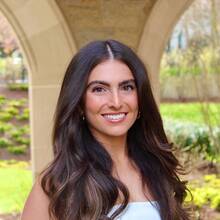A Reflection for Wednesday of the Fifth Week in Ordinary Time
Find today’s readings here.
“You are free to eat from any of the trees of the garden
except the tree of knowledge of good and evil.
From that tree you shall not eat;
the moment you eat from it you are surely doomed to die.”
Today’s first reading walks us through the precursor to the greatest human mistake in biblical history, the Fall of Man. You might recall this as the moment when Adam and Eve eat the forbidden fruit from the tree of knowledge, demonstrating a gross misapplication of their free will that results in the birth of Original Sin and the damnation of mankind to death.
But I’m not here to rub salt in the wound. Instead, I invite you on a journey to examine the pitfalls of your biblical ancestors, so that you can use their mistakes as tools for your own spiritual growth.
Our tale today begins in medias res, with God deciding that the earth is incomplete without a human caregiver. Problem-solving, God constructs Adam from clay and blows that famous “breath of life” into his nostrils, then gives him a beautiful garden, Eden, where Adam has total dominion over nature as long as he cultivates the land. It’s a sweet, simple gig with direct parameters.
God has only one instruction: Do not eat from the tree of knowledge of good and evil. “From that tree you shall not eat; the moment you eat from it you are surely doomed to die,” God says.
So what does Adam do? He eats the forbidden fruit from the tree of knowledge of good and evil, introducing the human race to sin. The bountiful other fruit trees, the vast garden with rivers, lakes and streams, the promise of eternal life—all of this Adam gives up to eat that darned apple.
It’s such a human mistake. Adam wanted to know the unknowable. He did the one thing he was told not to do. He was suspicious, prideful and mischievous, and ultimately, he tried to be better than God.
And he’s not alone.
As humans, we sometimes believe we can outthink, outmaneuver, or outplan God’s design. We can’t do that, but boy do we like to try. Take one look at the Towers of Babel we have built in our world today—the burgeoning field of artificial intelligence, our modern politics, even in our very own Catholic Church—and the following truth reveals itself: The pursuit of godlike power without godly wisdom leads us down dark rabbit holes, and forbidden fruit very often leaves a bitter aftertaste in our mouths.
Today’s Gospel passage is clear-eyed about the predictability of self-created human error. Jesus relays this message to a crowd: “the things that come out from within are what defile.” Jesus means that we, as human beings, can’t blame the world for our shortcomings without blaming ourselves. As one would expect, our problems are often self-inflicted by bad applications of our free will.
We are born, like Adam, with the innate capacity to sin. But we are also born with the innate capacity to do good. As Christians, this means shouldering the responsibility of knowing that we are not God (nor will we ever come close to being God), but maintaining the will to try to imitate Christ every day.
God endowed us with the freedom to make choices. It’s our job to decide whether this freedom is our greatest curse or our greatest gift.
You have that gift—right here, right now. What will you do with it?








